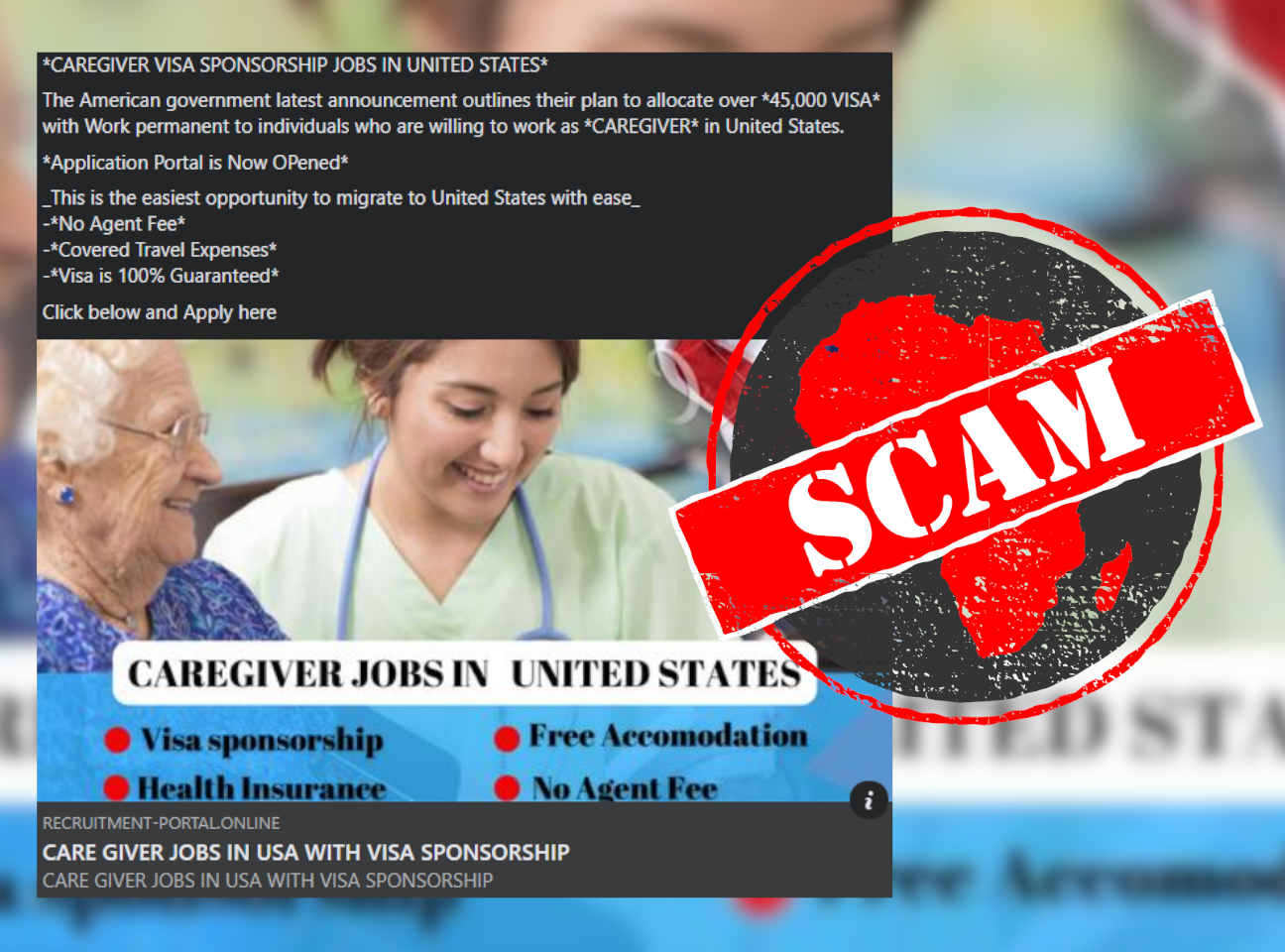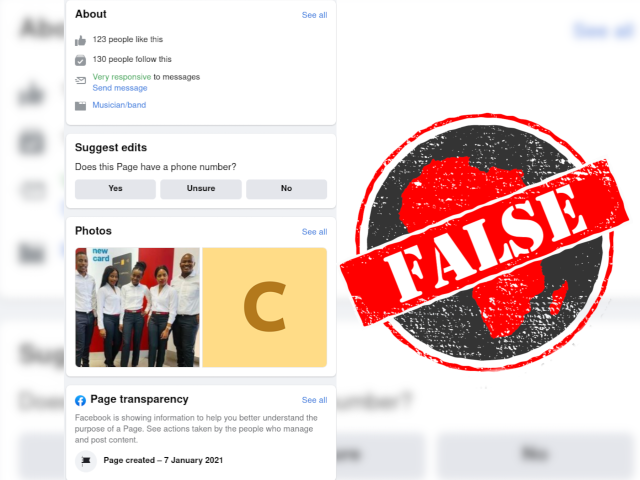IN SHORT: This unprofessional looking website offers job opportunities as a caregiver in the United States. But it is a classic example of engagement bait, and the posters may try to steal your personal information.
“The American government's latest announcement outlines their plan to allocate over 45,000 VISA with Work permanent to individuals who are willing to work as CAREGIVER in United States,” reads a message circulating on Facebook and WhatsApp in Kenya.
It also says: “This is the easiest opportunity to migrate to United States with ease. No agent fee, covered travel expenses, visa is 100% guaranteed. Click below and apply.”
The post then links to an amateurish-looking website – recruitment-portal.online – where interested users can apparently apply.
The post has been published on different Facebook groups here, here, here, here, here, here, here, here, here and here.
But is the website and information about job opportunities in the US legit? We checked.

‘Malicious’ website
When we clicked on the link to the website, our computer antivirus program warned us that it was potentially malicious. We took the risk – not recommended – and opened the site.
The website’s home page is headed: “CARE GIVER JOBS IN USA WITH VISA SPONSORSHIP.”
It also includes an application form that asks for personal details, such as name, email address, country of origin, gender and age.
We filled in the form and were directed to the next stage, which asked us to validate our name and current level of education.
After completing this stage, we were told that we had qualified to work as caregivers in the US on the sponsorship programme.
But there was a catch. We were instructed to share the website “with 5 groups or 15 friends on WhatsApp” by clicking on a green button.
It also displayed the message: “You will be redirected automatically to our ‘APPOINTMENT FORM’ page after the GREEN verification bar is filled.”
This is a classic example of engagement bait. These are usually social media posts that ask people to interact by liking, commenting or sharing. This increases the post’s reach but ultimately offers no reward, and certainly no work in the US.
Such links may also be attempts to steal the user’s personal information. Africa Check has exposed similar scam websites before.
To help protect yourself against online fraudsters, read our guide to Facebook scams and how to spot them.
Republish our content for free
For publishers: what to do if your post is rated false
A fact-checker has rated your Facebook or Instagram post as “false”, “altered”, “partly false” or “missing context”. This could have serious consequences. What do you do?
Click on our guide for the steps you should follow.
Publishers guideAfrica Check teams up with Facebook
Africa Check is a partner in Meta's third-party fact-checking programme to help stop the spread of false information on social media.
The content we rate as “false” will be downgraded on Facebook and Instagram. This means fewer people will see it.
You can also help identify false information on Facebook. This guide explains how.



Add new comment